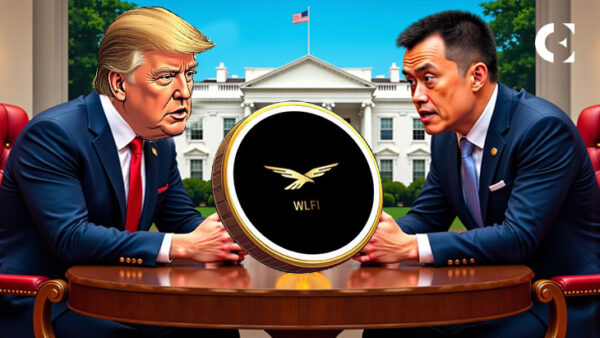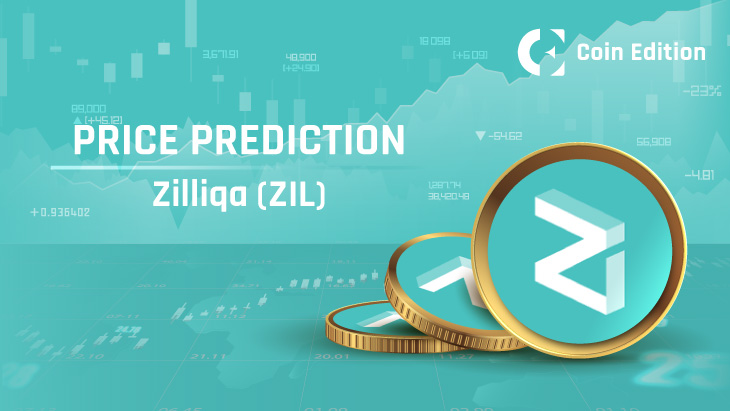- The White House presented the pardon as a sign of a new, more welcoming US policy toward crypto
- Several Democratic senators and consumer-protection advocates called the pardon suspicious and corrupt
- The same Hyperliquid trader who placed sizable bets that Bitcoin and Ethereum would fall just minutes before the huge crypto crash, also made a bet that CZ would receive a presidential pardon
On October 23, 2025, President Donald Trump issued a full pardon to Changpeng “CZ” Zhao, the founder of Binance, who pleaded guilty in 2023 to anti-money-laundering failures as part of a $4.3 billion settlement with the U.S. government.
The decision immediately set off fireworks across politics and markets, where BNB and other crypto assets rallied, while critics called the pardon evidence of political favoritism.
Related: WLFI Token Jumps 14% as Market Links Price Pump to Trump’s Pardon of CZ
Trump’s pardon of CZ
The White House presented the pardon as a sign of a new, more welcoming US policy toward crypto. Trump’s administration says this friendlier stance will help America lead in digital finance, ending what it calls the former administration’s “war on crypto.”
The pardon erases CZ’s federal conviction for failures in anti-money-laundering controls that led to a jail term. It was cheered by many industry participants who argued the sector needs regulatory clarity and leadership.
As expected, the critics were quick to respond. Several Democratic senators and consumer-protection advocates called the pardon suspicious and corrupt, citing the close financial and political connections between crypto industry leaders and the Trump campaign. They warned that this move could weaken the rules and accountability in a sector known for financial crime.
Related: “Get Your Facts Straight” CZ After Sen. Warren Criticizes Trump’s Pardon of Binance Founder
Pardon’s effect on US crypto regulation
In the short run, the pardon could make it easier for businesses linked to Binance to operate and rekindle the possibility of the exchange regaining access to the US market or finding American partners.
Looking further ahead, it could get more complicated and political. Supporters believe the pardon might lead to clearer rules that support innovation, faster approval for new crypto funds, and better cooperation between the industry and its regulators.
On the other hand, opponents say it will reduce the fear of punishment, lead to weaker rules, and empower scammers if the law isn’t applied evenly.
The $190 Million Hyperliquid Short And The Polymarket CZ Bet
The recent crypto market plunge, caused by President Trump’s surprise announcement of 100% tariffs on some Chinese goods, wiped out billions of dollars in leveraged positions.
It was reported that a large-scale trader on Hyperliquid placed huge bets that Bitcoin and Ethereum would fall just minutes before the tweet, earning a profit estimated to be between $160 and $190 million. Media outlets and blockchain investigators have variously called the account a “Hyperliquid whale.”
However, continued investigation reveals that the same trader had also made a relatively small bet of about $56,000 on Polymarket, correctly guessing that CZ would receive a presidential pardon. Naturally, this has led to accusations that the person had inside information on both the tariff decision and the pardon.
It is noted that this link is only a suspicion and is still being looked into, but the evidence points to curiously well-timed and highly profitable transactions.
A. On-chain trackers and reporting identified a highly leveraged “Hyperliquid” account that profited roughly $160-$190M around the tariff-driven crash. The trader’s identity has been speculated about publicly but not proven in court.
A. The White House said the pardon aims to end what it calls a prior administration’s war on crypto and to support US crypto leadership, while critics argue political ties and favoritism played a role.
A. While the action eliminates a significant regulatory obstacle for Binance and indicates a more supportive executive branch posture toward cryptocurrency, it simultaneously provokes a political reaction that may inspire new congressional oversight or legislation.
Disclaimer: The information presented in this article is for informational and educational purposes only. The article does not constitute financial advice or advice of any kind. Coin Edition is not responsible for any losses incurred as a result of the utilization of content, products, or services mentioned. Readers are advised to exercise caution before taking any action related to the company.







